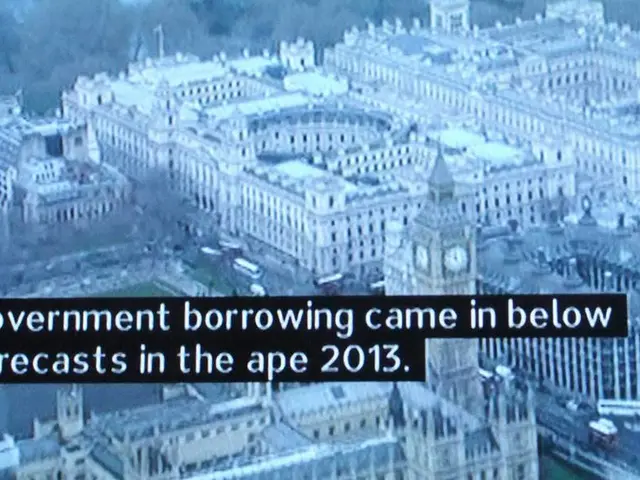Exemptions for Canadian Auto Components in Regulations
Stranded in the Auto-Tariff Dilemma: USMCA Comes to the Rescue
Hot off the press, guidelines from the U.S. Customs and Border Protection (CBP) have provided a glimmer of hope for the beleaguered North American automotive industry. The new rules exempt automotive parts that comply with the United States-Mexico-Canada Agreement (USMCA) from the crippling tariffs imposed by President Donald Trump.
This timely relief is crucial for an industry already choking on multiple layers of tariffs. Just last month, Donald Trump slapped a 25% tax on all vehicle imports to the United States. The administration, however, planned exceptions for automotive parts that adhered to the intercontinental trade agreement, or USMCA.
As the three automotive giants - Ford, General Motors, and Stellantis - have been tirelessly pleading, tariffs would push prices skyward and deal a devastating blow to the North American industry. General Motors CEO Mary Barra stated that these tariffs could cost the company up to $5 billion USD.
In a bid to help the industry brace the short-term impact, Trump signed a decree on Tuesday, ensuring that companies hit by the automotive tariffs won't see their bills stack up with other deductions, such as the 25% tariffs on steel and aluminum. Moreover, the president offered auto manufacturers a rebate for imported automotive detached parts, equating to 15% of the vehicle's retail selling price. This rebate would be scaled down to 10% the following year.
However, the decree lacked clarity regarding parts that complied with USMCA. A White House fact sheet later hinted that automotive components adhering to the trade agreement might receive a reprieve. It appears that this prediction was on the money, as the CBP guidelines reveal.
On the flip side, the exemption does not extend to automotive detached parts kits or assemblies of detached parts. The divided line for the Trump administration, according to Flavio Volpe, president of the Canadian Automotive Parts Manufacturers' Association, brings with it a "significant political risk."
Indeed, it seems that the introduction of tariffs on automotive parts presents a difficult challenge for the industry and the administration alike. In an attempt to stave off potential job losses and supply chain disruptions, six of the largest automotive lobbying groups in the United States wrote to the Trump administration last week.
The new USMCA tariff guidelines include a temporary blanket exemption for parts that meet USMCA origin requirements. However, the U.S. Department of Commerce must establish a process to apply tariffs solely to non-U.S. content after this transitional period. Until then, both U.S. and non-U.S. components of eligible parts are exempt from the 25% tariff.
Additionally, the tariff is imposed on top of existing duties, including the 25% tariffs on certain Canadian and Mexican goods, 25% steel and aluminum derivative tariffs, and the standard 2.5% Most-Favored Nation rate. Non-USMCA-compliant parts from Canada or Mexico could, therefore, be hit with an enormous 77.5% combined tariff rate.
In light of these complexities, it's essential for importers to immediately verify USMCA eligibility through certification protocols, document reviews for non-U.S. content calculations, and align their customs entries with Commerce guidance updates.
Notably, tariff non-compliance may result in the retroactive application of the 25% duty to all entries from April 3, 2025, onward. In these tumultuous times, it's best to be on the safe side.
- The USMCA guidelines, recently announced by the U.S. Customs and Border Protection, are a relief for the North American automotive industry, exempting automotive parts that comply with USMCA from the crippling tariffs.
- Tariffs, imposed by President Trump on all vehicle imports, have been a cause for concern for the automotive industry, which fears that they would push prices skyward and potentially lead to multi-billion dollar losses, as pointed out by General Motors CEO Mary Barra.
- The recent decision by President Trump to sign a decree ensuring that companies hit by the automotive tariffs won't see their bills stack up with other deductions, such as the 25% tariffs on steel and aluminum, was a welcome move to help the industry brace the short-term impact.
- However, the decree lacked clarity regarding parts that complied with USMCA, but a White House fact sheet later hinted that automotive components adhering to the trade agreement might receive a reprieve.
- Aerospace and finance industries, amongst others, are closely watching the developments in politics and general news surrounding the USMCA tariff guidelines, as their supply chains and financial health could be significantly impacted by these complexities.







